Published Nov 3, 2016
Catching Up with Gul Evek, Richard Poe
Catching Up with Gul Evek, Richard Poe
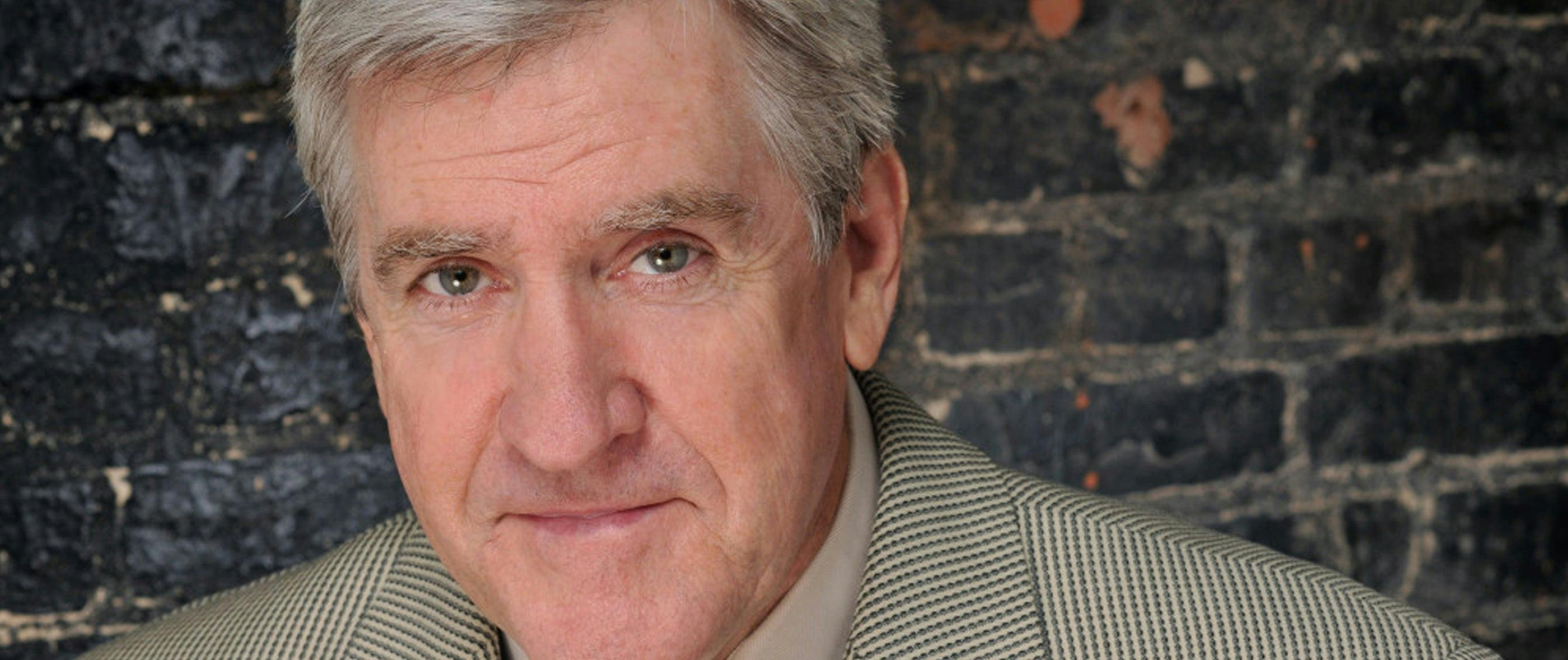
Richard Poe can lay claim to one of Star Trek’s rarest distinctions. He is just one of six actors to play the same role on three live-action Star Trek series. Poe portrayed the Cardassian character Gul Evek on The Next Generation(“Journey’s End,” “Preemptive Strike”), Deep Space Nine (“Tribunal,” “The Maquis, Part I” and “Playing God”) and also Voyager (“Caretaker”). The Trek shows are merely three of many, many film, television and stage credits to Poe’s name, as he’s appeared in Born on the Fourth of July, Frasier, Law & Order, Burn After Reading, Inside Amy Schumer, Gotham, Unbreakable Kimmy Schmidt and BrainDead as well. StarTrek.com met up with Poe this past summer at Star Trek Las Vegas, and he both filled us in on his current endeavors and looked back at his Trek experiences. Here’s what he had to say:
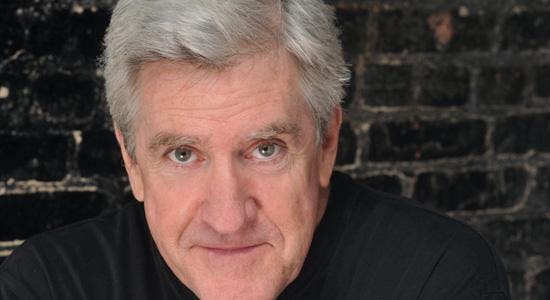
What are you working on these days?
Right now, I'm on hiatus from the theater. I’ve been doing it for 45 years. It used to be that I had to take all jobs, because I needed to make a living at it, and I'm fortunate to be in a position now, pushing 70, that all my pensions are just about to kick in, and I've been able to squirrel away enough money -- along with my wife. We're at the point where we want to do life, rather than work. We're going to do a lot of traveling. We’re going to New Zealand in January and Australia. That's our plan, to sort of see the world. I am still acting, though. I did a little arc on Gotham as Barbara Kean's father during season one, and I got bumped off very readily. Barbara killed us, me and my wife. I did an episode of Royal Pains. I did a series on Bravo called Odd Mom Out, an episode of that. I was in BrainDead and also Unbreakable Kimmy Schmidt. Luckily, I've had a few commercials that have been running and have been viable and profitable. But, theatrically, I really have just taken some time off.
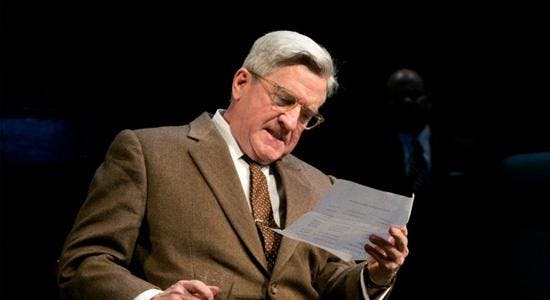
Well, All the Way is still fairly recent…
Just a year ago, and that was a big experience. Bryan was wonderful, Bryan Cranston. It was a grind, the being there every day. The older you get, the less the nerves are responsive and resilient, and you find the end of the show is "Oh, my God." Plus, it was a very long show and we were on stage every minute of it. That was the one, as much as I loved the show and the people and the experience, that told me, “It's OK. You can pull back a little bit."
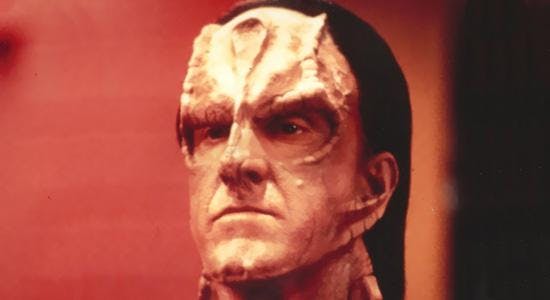
Let’s talk Trek. How did you land your role, originally?
I came to L.A. with a show out of New York. It had been a big hit, a Paul Rudnick comedy called Jeffrey. We played the Westwood Playhouse, which is now the Geffen. The opening night was one of those nights an actor dreams of. I got exit applause that lasted for about 30 seconds. It just so happened that Patrick Stewart, Rick Berman and a lot of people from Paramount were in the house. It's like "Oh, come in.” And they said, “We want to talk to you about some stuff we want you to do."
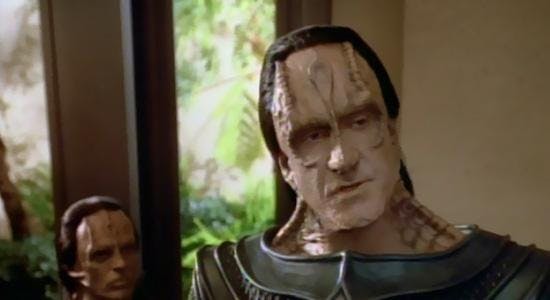
Berman and Stewart were known to socialize, but why were they at the show? Were they there specifically to see you?
It's a good question. I don't know. The main casting director from Paramount came as well. It's hard to know why, but I’m happy they came. What’s interesting is that Patrick eventually went on to play a big part in the movie version of Jeffrey. I don't know whether it was in the works that early or not. I don't think so. I think they just came. This play was the first time AIDS had been laughed at by the gay population. It was kind of a cause to them in that it was something that hadn't been done before. The buzz in New York was incredible. Everybody came. Anyway, it was Rick Berman who said, “Let's find something for him to do."
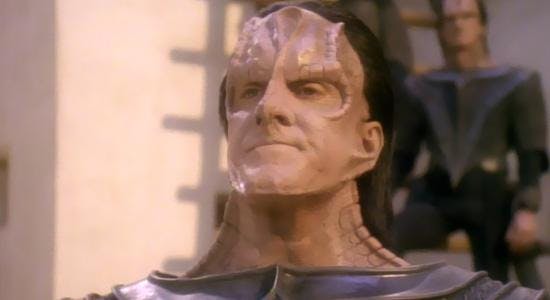
You first read for several human characters, right?
Yes. And none of them panned out. I finally convinced them I could do a Cardassian, apparently, or they just threw it to me. I can't quite remember, but one day I got a call, “Come and do this small part in Deep Space Nine. It's about voles.” It was a one-scene part, maybe six lines. That was “Playing God.” Apparently, I impressed them enough by doing it that they gave me another episode, a Next Generation episode, and a name, Gul Evek. That was, actually, the biggest of the six shows I did. It was "Journey's End," and I had a lot to do in it. Great experience. They kept throwing them to me. It was nice.
How surprised were you to get the call each time to come back, because that was really unusual, having one character cross series like that?
I'd like to think that I was doing a good enough job that they said, "Let's just see what happens. Let's keep him going." There was never any explanation. My agent called and said, “They’ve got another Star Trek for you. They'll deliver the script to your hotel." I was living in an old Tennessee Williams kind of hotel in Koreatown. I was out in the middle of nowhere, living hand to mouth. It was a great, wonderful little series of events.
You ultimately did "Journey's End" and "Preemptive Strike" for TNG, "Playing God," "The Maquis, Part 1" and then "Tribunal" for DS9 and the Voyager pilot, “Caretaker”…
Right. That's right.
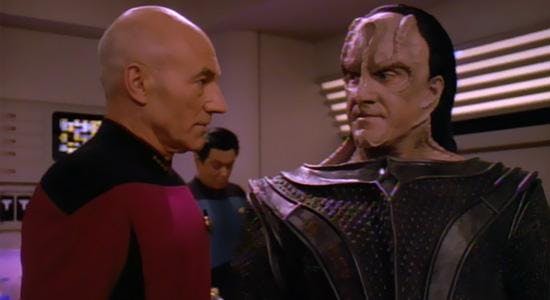
Of all of them, which do you enjoy the most? We’re assuming it's "Journey's End," because you had the most to do?
I think so. I think so. There were more colors to play, and it was my first one. I kind of discovered the character on the run. Nobody said "Here's the bible on how Cardassians are played and what they’re like." They just gave me general notes. The makeup guy said "You have a great face for this” -- and it was a long face and sort of angular at the time.
What was your sense of the differences between the sets?
I worked with Avery (Brooks), who directed "Tribunal," and it was his first time directing. It was intense. It was tense and swarming and brooding, not necessarily because of him. It was just the nature of the show, for one thing. Patrick's set, by the time I got on it, was much more like English theater, in a way, much more gentile and straightforward and quietly dramatic, whereas there was sort of a swarming quality on "Maquis," a more dangerous quality. Avery was a very serious man and he set the tone on set. I did the last year of Next Generation, so they were ready to do whatever they were going to do, and they knew how to do it. And the Voyager set -- especially because it was their first episode and they were just getting started -- was very different from Next Generation or DS9.
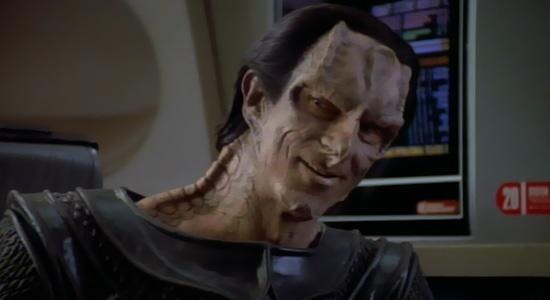
What do you remember of your Voyager gig, of working on "Caretaker".
It was fighting them, being on screen, telling them "Get the hell out of here. We know who you are. We're going after you." I can't remember any of the dialogue, really, and, then it was the war blasting them out into greater space, and that began the voyage. In a way, I facilitated that show. I like to think that I started Voyager.
You’re one of very, very few actors to have appeared on all three shows as the same character…
I found out later there were only five or six of us, I think, that did that, that crossed over all three shows. One of them is right there, John de Lancie (Poe pointed to de Lancie at his table across the room). Michael Ansara was another one. It was lovely. It's a nice thing to be able to tell people.
This is your first convention...
It is. I don't know why I avoided it. It's been lovely.
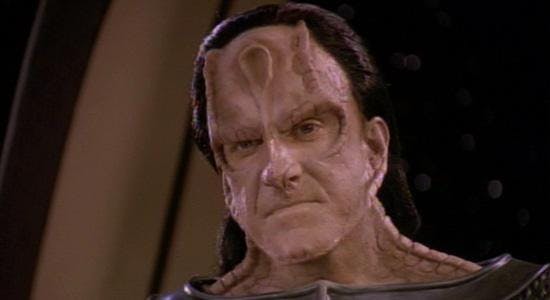
How have you enjoyed meeting the fans, signing autographs, sharing stories that you probably haven't told in years?
I'm Irish, Irish-Catholic American. My mother is first generation. We're always suspicious of any joy. We always say, "Wait a minute, wait a minute. Now, where's the catch?" It's not quite that extreme. It couldn't be nicer to have people come up and tell me what a good job I did. They remember the characters. They say, "You were really good." There's something about that that’s just irreplaceable. That's even more reward than people paying money for your autograph. It's so gratifying. The show has been, what, off 15 or 6 years. People still are as avid as ever. It's a phenomenon that I can't quite get my head around. I'm a little bit ... You keep one foot out the door, because you're thinking "Jesus. This is too wonderful and too strange at the same time."

